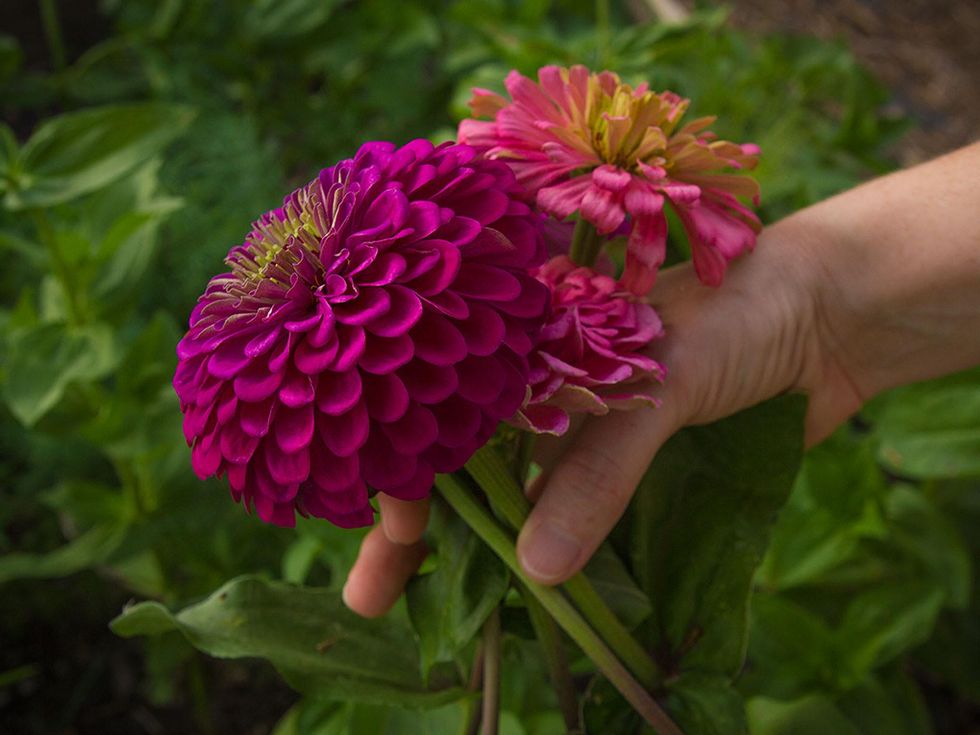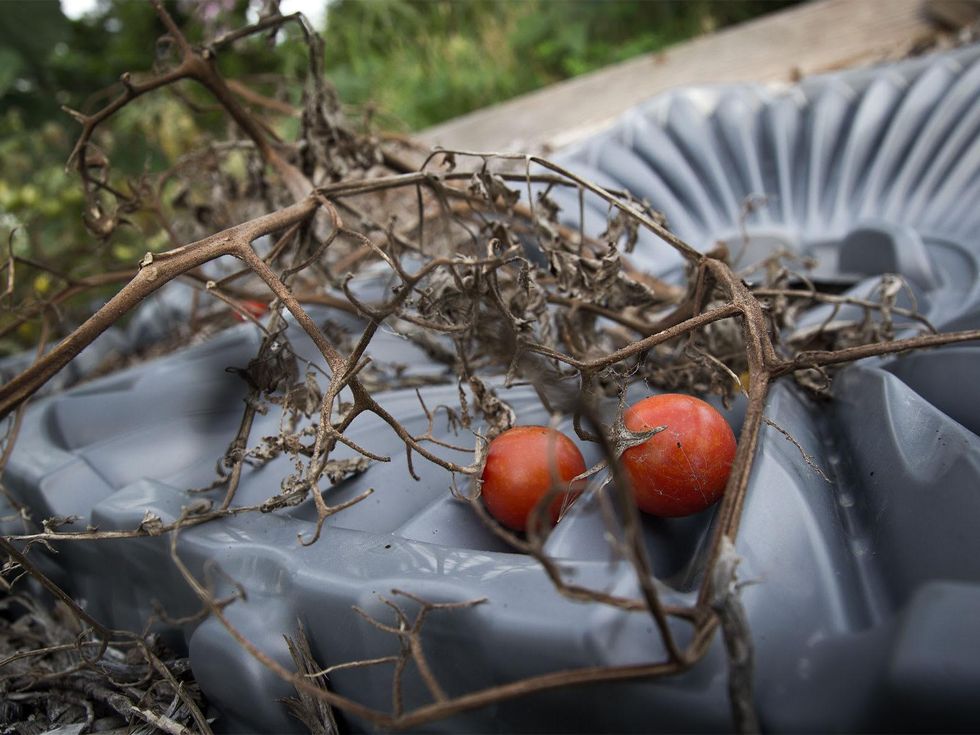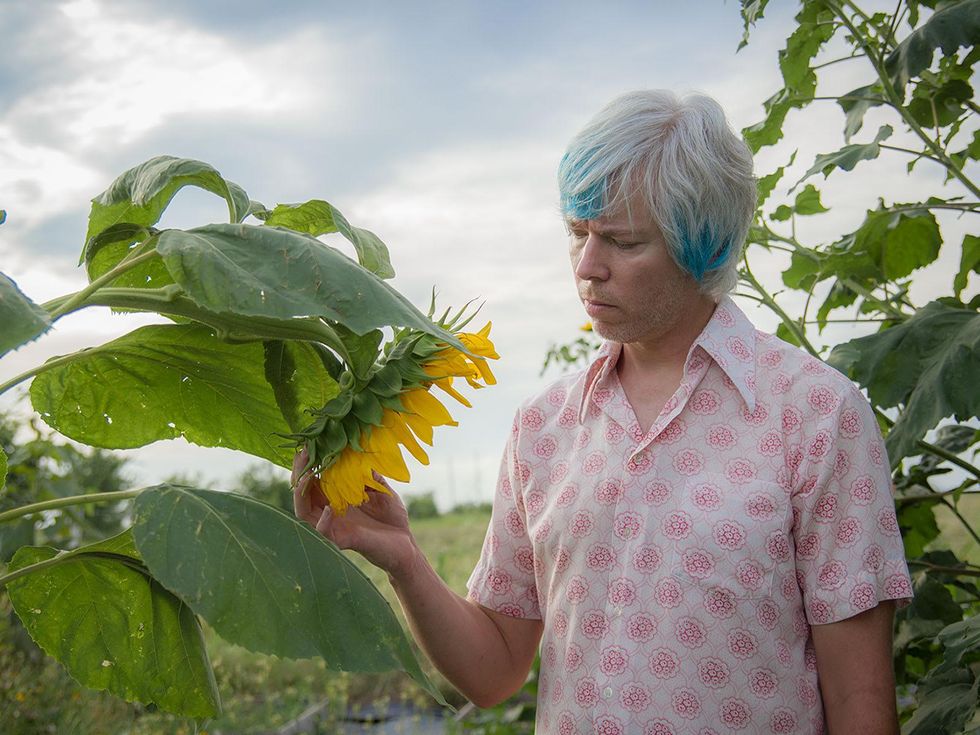The Farmer Diaries
Texas farmer reaps life lessons from his tomato plants
I enjoy growing my own food, not only for the harvest, but also for the things it teaches me about dealing with the challenges of life.
With dreams of a perfect, bountiful crop of tomatoes, I browsed for hours through seed catalogs last December. I bought seed for several varieties that work in my climate, and that I have learned do well under my care.
And so the journey began. In mid-January, I prepared a tub of soilless seed-starting medium. I filled 100 starter trays and sowed my tomato seeds in each cell. I watered them daily. Two weeks later, small, slender, olive green leaves poked up from the trays, representing the first sign of progress.
My tomato plants had died not from any single factor, but because I failed to give them what they needed to thrive, in the right balance.
I kept them indoors to protect them from the winter cold. I fed them nutrients at the right time, so they grew green and tall. I watched for gauzy webs on their leaves and branches, a sign of red spider mites that could take them down unless dealt with immediately.
In mid-March, I prepared the raised garden beds where I intended to plant the tomatoes. I weeded out winter grasses and worked compost and soil amendments into the soil.
Once springtime warmth displaced the chilly winter air, I began the hardening off process for the tender seedlings. Every morning for more than two weeks, I moved each of the 100 starter trays from out of the greenhouse onto a table outdoors. Each evening, I moved them back in.
By late March, with all the frosts and freezes for the season over, I transplanted the tomatoes seedlings. I watered them daily until their roots became established. I checked the weather daily to make sure that no late-season chill would threaten my work.
When a freeze was forecast, I took appropriate steps to protect them: covering each with a cardboard box weighted down with a concrete block. With all the bending and lifting, I seem to have hastened the progress of a condition that I was unaware was affecting my left eye. I had torn my retina. I was no longer free to attack my workload with my former vigor, just as there were more crops to plant.
My family stepped in to help me while I was healing. And while rainfall helped keep the soil moist, hand-watering was still frequently required. Invasive grasses popped up in the beds. Weeding them out was no small task. At some point, I had seen the leaves of a few plants turning yellow, but I dismissed it.
By the end of May, each plant was loaded with green tomatoes. My supply of delicious, vine-ripe tomatoes for the summer seemed almost unlimited.
Relationships between people must also be fed, watered and weeded with conscious intent to help them grow.
In June, I turned my attention to a fall crop of pumpkins. My commercial endeavor of growing specialty melons increasingly took time as well. As days passed, I walked by the tomato beds and noticed a few more tomato plants turning yellow. Some drooped toward the ground. I made a mental note to check on them later; I had more pressing matters that needed tending first.
A few days later, my tomato plants were nothing more than scrawny vines with brown leaves and immature fruit lying on the ground. How had this happened? They had died, but for no single reason that I can identify.
They were not riddled with pests, I'm almost certain. They were watered routinely, but maybe not sufficiently? The soil in which they grew was fertile, I think. As I inspected each plant, I could find no obvious cause of death.
In the end, I concluded that they had died not from any single factor, but because I failed to give them what they needed to thrive, in the right balance. Every season presents a new, unique set of challenges to face in keeping crops alive and healthy.
If rain is sparse, crops need irrigation. If soil is lean on nutrients, plants need supplemental fertilizer. Pest management is a never-ending task. If any of the factors is neglected, crops easily succumb to stress until they wither up and die.
When I mulled everything over in my mind after my disappointing discovery, I saw another example of how the gardening experience is an analogy to our lives. I regret to say that I've had friendships die, not because of a single wrong but because of a prolonged period of failing to give that relationship all it needs to thrive, whether it's acceptance, support, encouragement, patience, respect, trust, forgiveness, having something enjoyable in common or a similar purpose.
We can take for granted that the people we love will always be around and that our friendships are healthy and growing all on their own. But, in doing so, we run the risk of one day realizing that it's been a while since we've seen them, and they've moved on.
Relationships between people must be fed, watered and weeded with conscious intent to help them grow. Without the right balance of all the things they need, relationships die too, just like my tomato plants.



